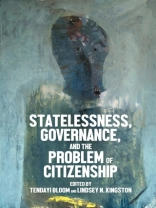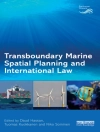When a person is not recognised as a citizen anywhere, they are typically referred to as ‘stateless’. This can give rise to challenges both for individuals and for the institutions that try to govern them. Statelessness, governance, and the problem of citizenship breaks from tradition by relocating the ‘problem’ to be addressed from one of statelessness to one of citizenship. It problematises the governance of citizenship – and the use of citizenship as a governance tool – and traces the ‘problem of citizenship’ from global and regional governance mechanisms to national and even individual levels.
With contributions from activists, affected persons, artists, lawyers, academics, and national and international policy experts, this volume rejects the idea that statelessness and stateless persons are a problem. It argues that the reality of statelessness helps to uncover a more fundamental challenge: the problem of citizenship.
Tabla de materias
A Stateless Poem – Danielle Legros Georges
Introduction: Opening a conversation about statelessness, governance, and the problem of citizenship – Tendayi Bloom and Lindsey N. Kingston
Part I: Producing and maintaining statelessness
Figure 1 New Democracy II – Shabu Mwangi
1 The problem of citizenship in global governance – Tendayi Bloom
2 ‘Fonua’ cultural statelessness in the Pacific and the effects of climate change – Kate Wilkinson Cross and Pefi Kingi
3 A regional politics of foreignness and Pakistan’s Afghan refugees – Anoshay Fazal
4 The statelessness of refugees – Jason Tucker
Figure 2 Dissolution of the moonbeam union – Mawa Rannahr
5 Statelessness and the administrative state: The legal prowess of the first-line bureaucrat in Malaysia – Jamie Chai Yun Liew
6 Language and statelessness: The impact of political discourses on the Bidoon community in Kuwait – Ahmad Benswait
7 The weaponisation of citizenship: Punishment, erasure, and social control – Lindsey N. Kingston
8 Statelessness and governance in the absence of recognition: The case of the ‘Donetsk People’s Republic’ – Nataliia Kasianenko
9 Legal identity and rebel governance: A comparative perspective on lived consequence of contested sovereignty – Katharine Fortin, Bart Klem, and Marika Sosnowski
Part II: Living with the problem of citizenship
Figure 3 Obsession – Manal Deeb
10 Transnational surrogacy, biocitizenship, and statelessness: India’s response to the ‘ghosts of the republic’ – Pragna Paramita Mondal
11 The birth certificate as fetish object in the governance of citizenship and its presumed sex and gender norms – Jan Lukas Buterman
12 Seeking ‘a right to belong’: A stateless Shan youth’s journey to citizenship in northern Thailand – Janepicha Cheva-Isarakul
13 Being excluded or excluding yourself?: Citizenship choices among stateless youth in Estonia – Maarja Vollmer
Figure 4 Letter – Karina Gareginovna Ambartsoumian- Clough
14 Statelessness and governance at the periphery: ‘Nomadic’ populations and the modern state in Thailand, Côte d’Ivoire, and Lebanon – Christoph Sperfeldt
15 Ageing and stateless: Non-decisionism and state violence across temporal and geopolitical space from Bhutan to the United States – Odessa Gonzalez Benson, Yoosun Park, Francis Tom Temprosa, and Dilli Gautam
16 Asking the ‘other questions’: Applying intersectionality to understand statelessness in Europe – Deirdre Brennan, Nina Murray, and Allison J. Petrozziello
Part III: Rethinking governance
Figure 5 I don’t recognize me in the shadows – Thana Faroq
17 The ethics of quantifying statelessness – Heather Alexander
18 Registering persons at risk of statelessness in Kenya: Solutions or further problems? – Edwin O. Abuya
19 Too little too late? Naturalisation of stateless Kurds and transitional justice in Syria – Haqqi Bahram
20 Statelessness elimination through legal fiction: The United Arab Emirates’ Comorian minority – Yoana Kuzmova
Figure 6 All faces – Arison Kul
21 Supra-national jurisprudence: Necessary but insufficient to contest statelessness in the Dominican Republic – Bridget Wooding
22 ‘Civil society advocacy: Using norms to promote progress on the Global Action Plan to End Statelessness – Melissa Schnyder
23 The construction of a Brazilian ‘hospitality policy’ and the adoption of a new legal framework for stateless persons – Thiago Assunção
24 Ideological governance of citizen and non-citizen others in Kuwait – Areej Alshammiry
25 ‘We are not stateless! You can call us what you like, but we are citizens of Myanmar!’: Rohingya resistance and the stateless label – Natalie Brinham
26 United Stateless in the United States: Reflections from an activist – Ekaterina E
Figure 7 We are not immigrants – Fred Kuwornu
Index
Sobre el autor
Tendayi Bloom is a Lecturer in Politics and International Studies at the University of Birmingham Lindsey N. Kingston is Associate Professor of International Human Rights at Webster University in Saint Louis, Missouri












